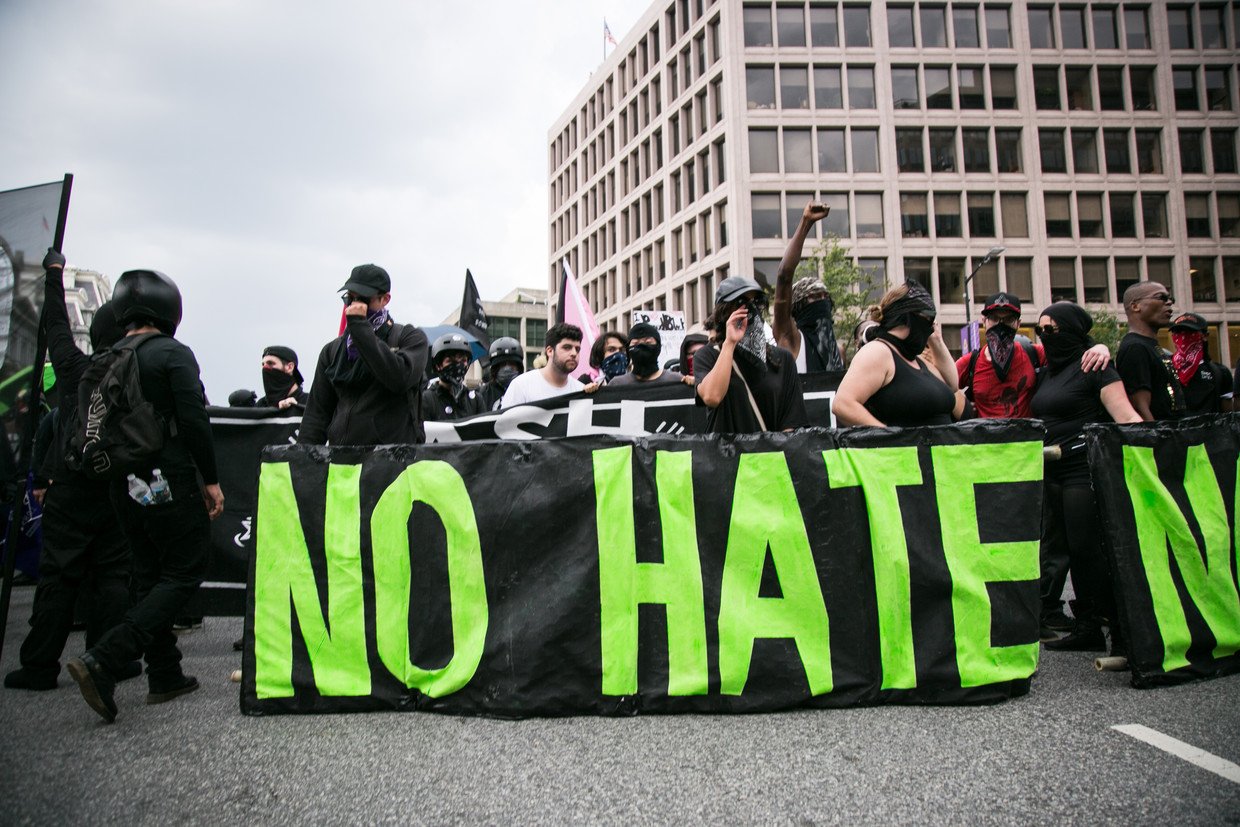B***h, please! Banning ‘sexist’ language won’t make sexism disappear, any more than banning racial slurs killed racism
A Massachusetts congressman wants to end sexism by punishing sexist language - specifically the word “b***h” – with fines and even jail. But policing speech doesn't kill the underlying sentiment – that requires real social change.
Massachusetts Democrat Daniel Hunt's bill to ban the “b-word,” fining offenders $150 on the first offense and $200 or six months in prison if they can't stop saying it, sounds like the kind of joke conservatives might make to poke fun at the uber-liberal Bay State. But the bill – titled ‘An act regarding the use of offensive words’ – is real. Worse, any witness to the use of the word can complain.
Also on rt.com 'Triggered' liberals busy preaching PC dogma, as poor struggle to survive on America's mean streetsA person who uses the word ‘bitch’ directed at another person to accost, annoy, degrade or demean the other person shall be considered to be a disorderly person.
Hunt's bill, which he insists was submitted at the request of a constituent, is far from the only example of the Democratic Party clutching its pearls over speech while giving the sentiment beneath that speech a pass. A vocal segment of the Left has become notorious as America's “speech police,” calling out offenses real and imagined on social media and inciting outrage mobs to force apologies out of celebrities and businesses, sometimes sincere but often perfunctory and defensive.
Criminalizing “sexist” language to curb sexism reverses cause and effect. Martin Luther King Jr. wouldn't have gotten very far during the Civil Rights era had he merely strived to end the use of racial slurs in order to achieve equality for the races. Such words are no longer acceptable to use because of significant organizing, marching, and other forms of protest from sit-ins to boycotts. Social change comes first – language is just a reflection of societal norms.
Yet liberals seem to have forgotten even that. College students and professors at the University of Connecticut turned out in protest earlier this week, demanding the arrest of two students who were overheard calling each other racial slurs in a vulgar word game. The mob didn't stop to realize that the slur – once a commonplace insult directed at black people – is now considered an obscenity thanks to the strides American society has made toward equality. The students were using it to shock – rather like someone yelling “b***h” in a public place.

Politicians should have a better grasp of history than college students, but this is not always the case. Earlier this week, Democratic congressman Al Green pounced on President Donald Trump for comparing his impeachment probe to a “lynching.” Green, who is black, excoriated the president for appropriating his racial history – even though the word simply means an extrajudicial execution by a mob, and Democrats used it to defend their own president Bill Clinton during his impeachment in 1999.
Green's histrionics allowed Congress to avoid addressing the president's point – that his impeachment investigation was proceeding at record speed, with little regard for legal precedent, and that it put future presidents in jeopardy. This is the usual outcome of speech-policing: bringing down an outrage mob on the head of whoever used the forbidden word, while utterly obscuring the context and negating any point they may have been making.
It's not that there isn't room for improvement in the US with regard to gender and racial equality. Congress – should it desire – could pass laws to help reduce the racial disparities in criminal convictions and sentencing, instead of demanding (in California, at least) that felons be referred to as “justice-involved persons” so as not to offend their delicate sensibilities.
Also on rt.com From ‘felon’ to ‘justice-involved person’: San Francisco fights crime with PC languageIt could mandate paid maternity leave like the rest of the developed world, giving women more opportunities to advance in the workplace without penalizing them for giving birth; instead, some states (California again) mandate “de-gendering” of job titles like postman, policeman, and fireman. But playing speech-police is the easy way to signal virtue, while changing social norms is difficult.
Massachusetts’ ‘b***h bill’ is clearly unconstitutional, civil rights attorney Harvey Silverglate told the Herald, and fortunately Hunt is getting some pushback from his fellow legislators. Given the current state of affairs, though, it's only a matter of time before the speech police strike again.
By Helen Buyniski, RT
If you like this story, share it with a friend!
The statements, views and opinions expressed in this column are solely those of the author and do not necessarily represent those of RT.













